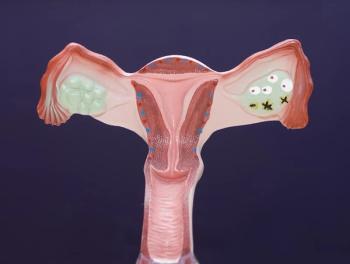
Miami Breast Cancer Conference® Abstracts Supplement
- 39th Annual Miami Breast Cancer Conference® - Abstracts
- Volume 36
- Issue suppl 3
- Pages: 27
39TiP The PREDICT Registry: A Prospective Registry Study to Evaluate the Effect of a Predictive Assay on Treatment Decisions in Patients withDCIS Following Breast Conserving Therapy
Background/Significance
The benefits of adjuvant radiation therapy (RT) in patients with ductal carcinoma in situ (DCIS) treated with breast-conserving surgery (BCS) remains controversial. Although there is level 1 evidence supporting the role of RT in reducing the risk of local recurrence, the absolute benefit is variable. Current guidelines generally recommend RT for all patients having BCS, but it is important to develop prognostic and predictive tools to better assess risk and understand the impact such a tool would have on treatment decisions. The DCISionRT Test (PreludeDx, Laguna Hills, CA) is a biologic signature that provides a validated score for assessing 10-year risk of recurrence and RT benefit using individual tumor biology as assessed by clinical and pathologic biomarkers.
Design and Methods
This is a prospective cohort study for patients diagnosed with DCIS of the breast. Treating physicians complete a treatment recommendation survey before and after receiving DCISionRT test results. Test results, treatment recommendations, patient preferences, and clinicopathologic features are stored in a deidentified registry for participating institutions from a variety of geographic regions across the United States. The study will also collect 5- and 10-year recurrence and survival data. The study includes women over 25 years of age who are candidates for BCS and eligible for RT and/or systemic treatment with sufficient tissue to generate test results. Subjects must not have been previously treated for DCIS or have previous or current invasive or microinvasive breast cancer. The primary end points are changes in treatment recommendations for surgical, radiation, and hormonal therapy. Secondary end points are identification of key drivers for treatment recommendations, including age, size, grade, necrosis, hormone receptor status, and other clinicopathologic factors. Changes in treatment recommendations will be assessed using McNemar’s test with an α level of 0.05. Differences in recurrence-free and overall survival will be evaluated by Kaplan-Meier survival analysis using the log-rank test and/or the Cox proportional hazards model.
Status
On January 4, 2022, the study met its phase 1 accrual goal of 2500 patients from 67 institutions. Additional research objectives are being planned, and accrual is scheduled to reopen around midyear 2022.
Author Affiliations:
Steven C. Shivers,1,4 Pat W. Whitworth,2 Rakesh Patel,3 Troy Bremer,1 Charles E. Cox4
1PreludeDx, Laguna Hills, CA
2Nashville Breast Center, Nashville, TN
3Good Samaritan Cancer Center, Los Gatos, CA
4University of South Florida, Tampa, FL
Articles in this issue
Newsletter
Stay up to date on recent advances in the multidisciplinary approach to cancer.




































